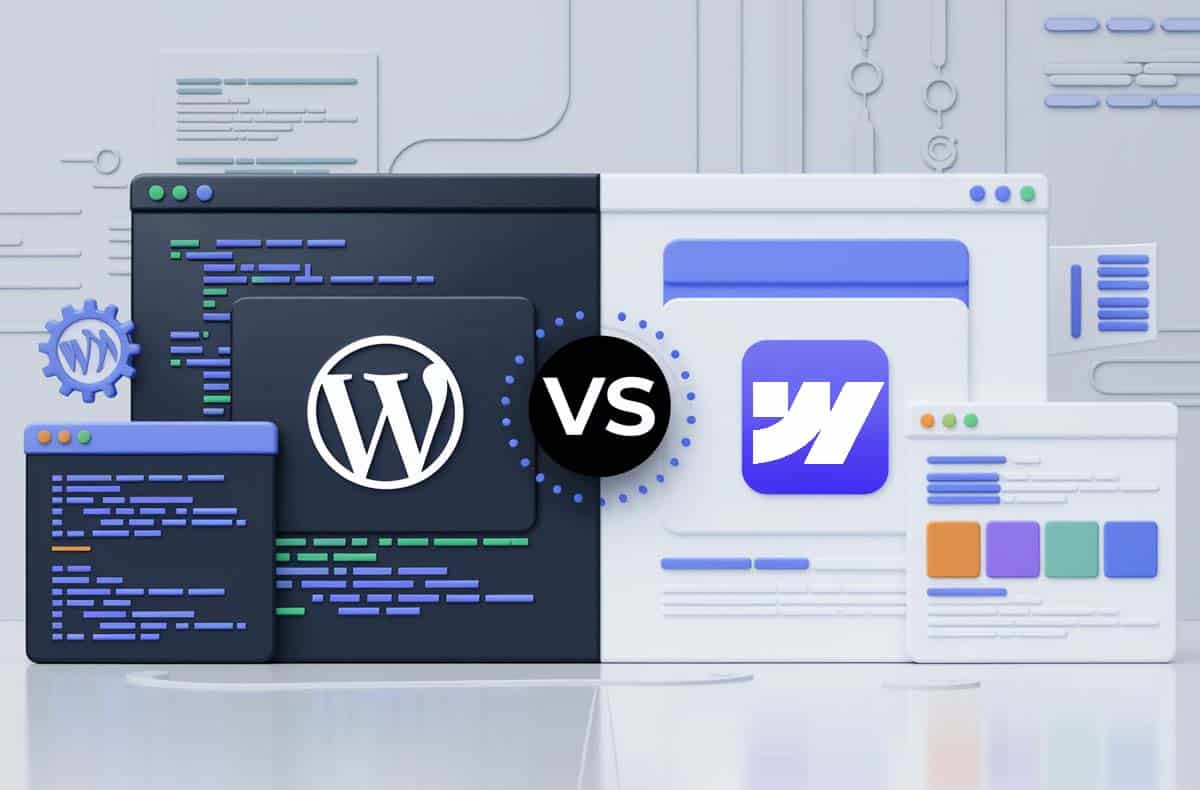

In today’s fast-paced digital world, choosing the right website platform can make or break your online success. With more businesses moving online, the debate between Webflow vs WordPress in 2025 has become more relevant than ever. Both platforms are powerful, but they serve different audiences and business needs. At Websol Solutions, we help businesses choose the right platform based on their goals, scalability, and budget.
So, which platform should you choose in 2025? Let’s dive deep.
WordPress has been around for more than two decades and remains the most popular Content Management System (CMS) in the world. In 2025, it still powers over 40% of all websites globally.
Flexibility & Plugins: With over 60,000 plugins, you can add almost any functionality to your website, from SEO optimization to e-commerce.
SEO-Friendly: WordPress is highly optimized for search engines with plugins like Yoast SEO and Rank Math, making it ideal for content-heavy websites.
Community & Support: Millions of developers, designers, and businesses use WordPress, meaning support and resources are always available.
Cost-Effective: WordPress is free to install, and hosting options are widely available at affordable prices.
Requires regular maintenance, updates, and security checks.
Speed optimization often needs plugins or technical support.
Can become complex if overloaded with too many plugins.
WordPress in 2025 is still a great choice for blogs, e-commerce stores, corporate websites, and businesses that want scalability at a lower cost.
Webflow has been growing rapidly and is now one of the most popular no-code web design platforms in 2025. It combines design freedom with built-in hosting, making it a strong alternative to WordPress.
Visual Design Control: Webflow allows you to design with pixel-perfect precision using a drag-and-drop interface.
No Plugins Required: Unlike WordPress, Webflow has built-in features such as SEO tools, hosting, and CMS options.
Speed & Security: Webflow websites are fast, secure, and require less maintenance compared to WordPress.
Modern CMS: Perfect for businesses that want a sleek, custom website without dealing with backend complexities.
More expensive than WordPress, especially for large-scale websites.
Smaller community compared to WordPress.
Advanced features may require learning curve for beginners.
Webflow in 2025 is an excellent choice for agencies, startups, and businesses that prioritize modern design, speed, and hassle-free management.
The decision between Webflow vs WordPress in 2025 comes down to your business goals:
Choose WordPress if you want scalability, cost-effectiveness, and access to thousands of plugins.
Choose Webflow if you want a modern, visually stunning, and low-maintenance website with built-in hosting.
At Websol Solutions, we recommend WordPress for long-term content-heavy projects and Webflow for businesses that need modern, quick, and visually appealing websites.
Both Webflow and WordPress remain top choices in 2025. While WordPress offers flexibility and affordability, Webflow delivers modern design with less hassle. The right choice depends on your budget, goals, and technical expertise.
If you’re unsure which platform suits your business, Websol Solutions can help you analyze your requirements and create a website that delivers results.